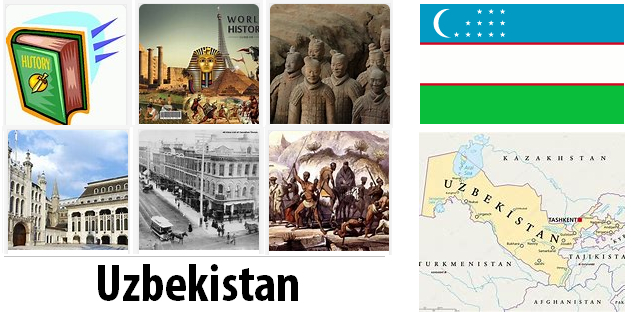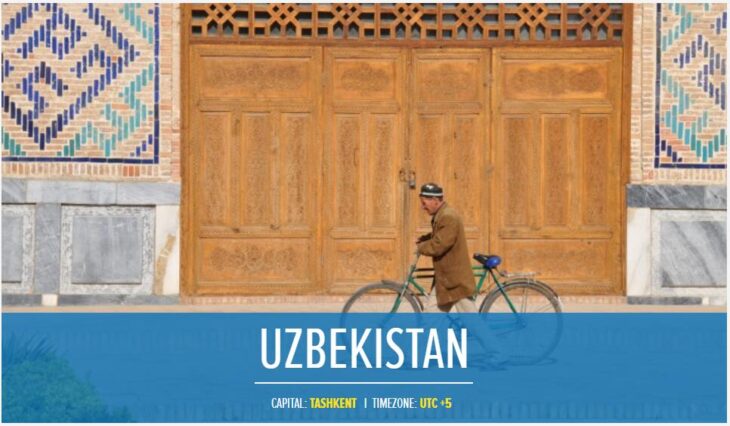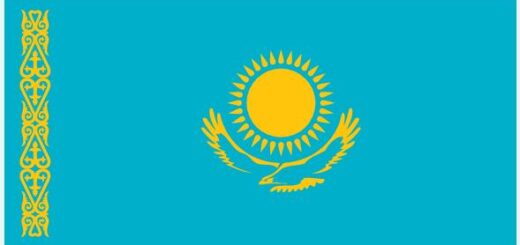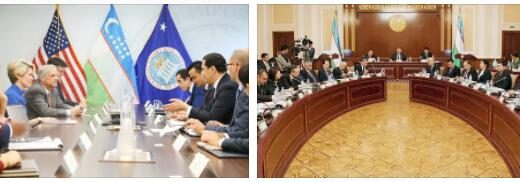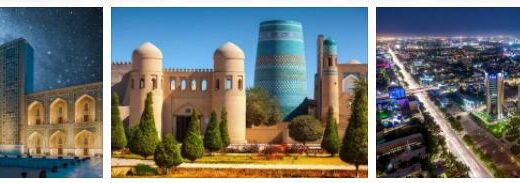Uzbekistan Recent History
It extends between Amu Darja and Sir Darja, with capital Tashkent. For knowledge of the country, it must be traced back to the XII and XIII centuries when some traffickers from the cities of Kiva and Bukhara began to be noticed on the Russian markets. And when the Russians conquered the kingdoms of Kazan and Astrakan and the Steppe of the Kyrgyz, in the 16th century, it was possible to get to know the territory of present-day Uzbekistan in greater detail.
In the seventeenth century Russia sent its representatives to Kiva and Bukhara to agree commercial relations, and not only.
The country was an excellent way for the Indies and Tsar Peter the Great did everything to penetrate it and achieve the goal, but everything was unsuccessful.
According to Abbreviationfinder, an acronym site which also features history of Uzbekistan, it was necessary to arrive in the mid-nineteenth century for Russia’s conquest of the Kokand Khanate and the capital Tashkent, with the consequent subjugation of all the surrounding territories.
But when the tsarist empire collapsed, the feast of liberty was celebrated all over the city of Tashkent on 10 March 1917. Then anti-militarist riots broke out, following which a Muslim government was proclaimed in November of the same year.
This was immediately opposed by the Bolshevik one always located in Tashkent and then riots and massacres took place that continued even after the proclamation of the Federated Republic of Turkestan, autonomous, which took place on April 30, 1921.
On April 14, 1921 Moscow formed 5 other federation republics, including that of Uzbekistan, which became part of the Soviet Union on December 5, 1924 with the Karakolpaki Republic and part of the former Khanates of Kiva and Bukhara.
After the end of the Second World War, Uzbekistan experienced significant economic progress in the first decade as a Soviet Socialist Republic. Various industries decreed its progress, starting with the textile industry since the abundance of water supplied by the grandiose Farchad hydroelectric power station makes it possible to irrigate endless stretches of cotton plantations. And also a highly developed cattle breeding, especially of valuable breeds, allowed the production of a very special fur, the astrakhan, one of the most valuable in the world.
Considerable importance was taken by the mining industry: oil, coal, copper, tungsten, tin and lead joined the production of building materials, including marble.
And agriculture also reached very high levels since a dense network of channels for irrigation also allowed to serve that desert area known as the “steppe of hunger”. Precious grapes, wheat, rice, tea, fruit of all kinds, legumes and vegetables were the company of the cultivation of mulberry for the breeding of silkworms.
It is due to Tashkent, the capital, if Central Asia is still self-sufficient in the production of steel, agricultural machinery and to Almalyk for oil refineries and chemical plants.
In the late 1980s, with the dissolution of the Soviet Union, Uzbekistan found itself in complete political isolation, having been, until then, 1989, joined to that power as one of the federation republics.
The population, not accustomed to opposing, and not being able to give themselves a different democracy, at the beginning continued to follow the dictates of the ever-present Communist party which, without conflict of any kind, in November 1990 won the absolute majority in the elections of the Supreme Soviet. This posed to President of the Republic I. Karimov and premier was S. Mirsaidov.
But Karimov worked to be able to give the country full autonomy from Moscow and on August 31st the Supreme Soviet and the Uzbek Communist Party dissociated themselves from the Russian government and declared their independence.
In 1991 the Uzbek communist party was called the Uzbekistan People’s Democratic Party. In December of the same year, despite having the independent candidate M. Solikh obtained 12% of the votes, the elections confirmed by a large majority Karimov and the voters also expressed their independence with 98% of the votes. However, the government did not make any democratic change to its policy and rather limited the freedom of the press and expression, and applied strict controls and restrictions to prevent the emergence of Islamic movements that would cause a civil war between the different ethnic groups and religions. it was already happening in the neighboring republic of Tajikistan.
In 1994 a plan for an economic union was signed with the Central Asian republics and Karimov promised that he would authorize the participation of the oppositions in the subsequent elections. These were held in two shifts, December 1994 and January 1995. In fact, only the Popular Democratic Party of Uzbekistan and its ally “Progress for the Fatherland” participated. Then in March 1995 a popular referendum extended the presidential term in Karimov until 2000 so that presidential and political elections could take place at the same time.
The biggest concern of the Uzbek government was always to stem Islamic expansionism, for which a bloody civil war was already in progress in neighboring Tajikistan.
And also, to strengthen its independence, in 1996 it improved relations with all the states of Central Asia, also formerly Soviet.
Even earlier, President Karimov had proposed to Kazakhstan and Kyrgyzstan the establishment of a common “peacekeeping” force under the protective wing of the United Nations. This force was to be joined by a “Regional Defense Council”. Furthermore, a common economic space was envisaged, where they could also manage their energy and water resources.
To deliberate this there had been a summit meeting in July 1997 in Bisbek, Kyrgyzstan. Then, in March 1998, another meeting had taken place in Dusanbe, Tajikistan, to discuss the problems associated with Islamic extremism, which was extremely threatening in those areas.
A special agreement for the construction of industrial plants, roads and railways, between Uzbekistan and Tajikistan to give work to the people of the latter and thus avoid inevitable migratory flows that would undoubtedly have occurred due to unemployment.
At the same time, the United Nations asked Uzbekistan to cease selling arms to Afghanistan, specifically to forces loyal to General R. Dostum, of Uzbek ethnicity. This is not to increase the already abundant difficulties of that long war, the end of which could not be seen.
This area was too important as an oil transport route from the Caspian, as well as for the question of Islamic fundamentalism, and this made it difficult to solve any other question.
Then there was a sharp deterioration in relations with Russia when in February 1999 Uzbekistan withdrew its presence in the collective security treaty of the CIS countries, previously stipulated in Tashkent.
Meanwhile Karimov continued to exercise his undisputed power and, while he decided to open schools for teaching the Arabic language and civilization, for which he also built the first university of this type, on the other hand he outlawed the Islamic parties “Birlik”, or Unity and “Erk”, or Freedom. And again, it imposed strict laws to restrict press freedom.
For some time, fierce criticism has been addressed to the Uzbek government for the environmental degradation in which the country was located due to overdeveloped and indiscriminate industrialization. But the most serious pollution proved to be that deriving from the excessive and disordered use of the salt water of Lake Aral. From this area, in fact, from 1991 to 1998 over 75,000 people had been forced to leave and 270,000 were those who left the state.
Karimov had also passed very strict laws against terrorism and, despite this, in February 1999 he was made the subject of an attack, which failed, but which had caused 16 deaths and 150 wounded.
However, political elections took place in December of the same year and the president’s party had an absolute majority. And, “for the sake of completeness”, in January 2000 the presidential elections were a real triumph, where Karimov, with 91.9%, was reconfirmed as President.
